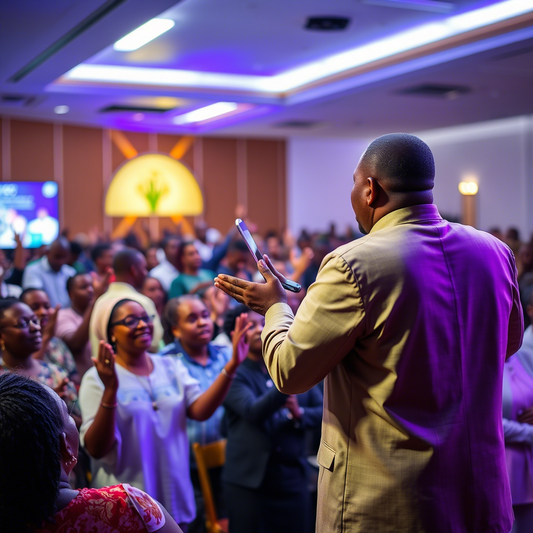
ACT OF WORSHIP
Share
Worship is a central theme throughout the Bible, deeply woven into the fabric of God's relationship with humanity. It's more than just singing songs or attending a service; it's a holistic response of the creature to their Creator, acknowledging His worth, power, and love.
Old Testament Foundations:
In the Old Testament, worship was often expressed through elaborate rituals, sacrifices, and offerings as commanded by God. The construction of the Tabernacle and later the Temple provided a specific place for corporate worship, symbolizing God's presence among His people.
- Sacrifice and Atonement: Animal sacrifices, particularly on the Day of Atonement, were a primary form of worship, pointing to the need for propitiation for sin and foreshadowing the ultimate sacrifice of Christ (Leviticus 16).
- Praise and Thanksgiving: The Psalms are a rich collection of worship songs, prayers, and expressions of praise, demonstrating heartfelt adoration and gratitude to God (Psalm 100).
- Obedience: True worship also encompassed obedience to God's commandments. Samuel famously declared, "To obey is better than sacrifice" (1 Samuel 15:22), highlighting that outward acts of worship are meaningless without an obedient heart.
- Proskynesis: This Greek word, often translated as "worship," literally means to "bow down" or "prostrate oneself," indicating a posture of humility and submission before a superior. It's used to describe both worship of God and respect shown to kings or superiors.
New Testament Transformation:
The New Testament brings a profound transformation to the understanding of worship, moving from ritualistic acts to a more spiritual and personal engagement with God, made possible through Jesus Christ.
- Worship in Spirit and Truth: Jesus tells the Samaritan woman that true worship will no longer be confined to a specific geographical location but will be "in spirit and truth" (John 4:23-24). This emphasizes an inward, authentic worship that engages the heart, mind, and will, aligning with God's character and revelation.
- Jesus as the Object of Worship: The New Testament consistently portrays Jesus as worthy of worship. From the adoration of the wise men to the disciples' worship after His resurrection, and even the heavenly hosts bowing before Him, Jesus is clearly presented as divine and an object of worship (Matthew 2:11; Luke 24:52; Revelation 5:12-14).
- Living Sacrifice: Paul encourages believers to "present your bodies as a living sacrifice, holy and acceptable to God, which is your spiritual worship" (Romans 12:1). This expands worship beyond isolated acts to encompass one's entire life, where every thought, word, and deed can be an act of worship.
- Worship Through Christ: Access to God in worship is now through Jesus Christ, our great High Priest. We can "draw near with a true heart in full assurance of faith" because of His atoning work (Hebrews 10:19-22).
- Corporate Worship: While personal worship is vital, the New Testament also emphasizes the importance of corporate worship, where believers gather to praise God, hear His word, pray, and partake in communion (Acts 2:42; Hebrews 10:25).
Elements of Worship:
Throughout both testaments, various elements consistently appear in worship:
- Praise and Adoration: Acknowledging God's greatness, character, and works (Psalm 145).
- Prayer: Communicating with God through petitions, intercession, confession, and thanksgiving (Philippians 4:6).
- Reading and Preaching of God's Word: Receiving instruction and revelation from God (2 Timothy 3:16).
- Giving: Offering back to God a portion of what He has given us as an act of gratitude and trust (2 Corinthians 9:7).
- Communion/Lord's Supper: Remembering Christ's sacrifice and celebrating His presence (1 Corinthians 11:23-26).
- Baptism: Publicly identifying with Christ's death, burial, and resurrection.
THE REDEEMED CHRISTIAN CHURCH OF GOD
GOOD SEED ASSEMBLY
Address: 710 S Kings Ave, Brandon, FL 33511
Phone: (813) 451-1634


